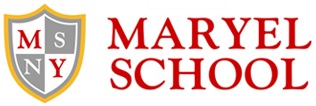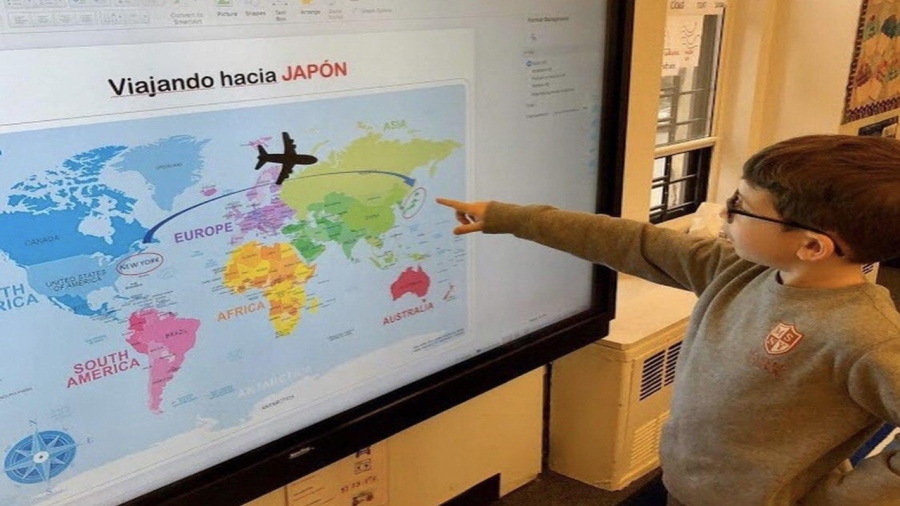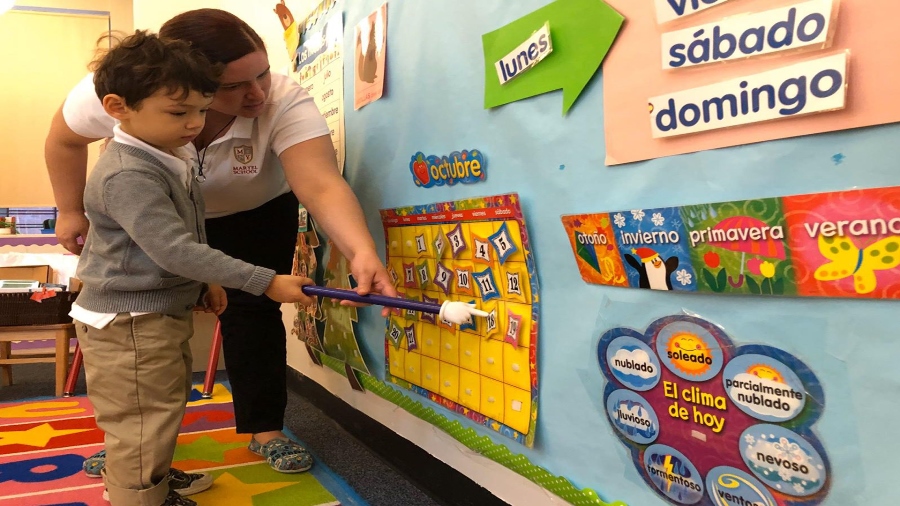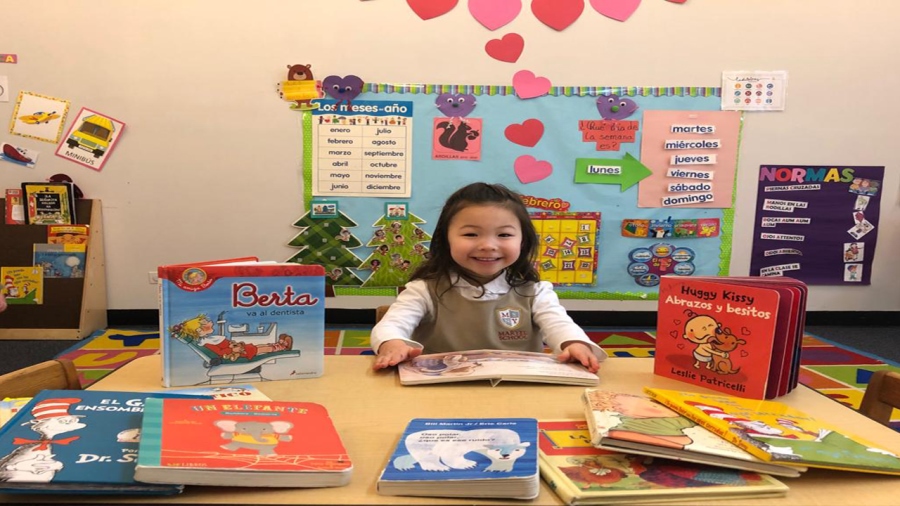Elementary School (K – Grade 5)
Elementary School represents a time of extraordinary growth. In these years, students cultivate independent study skills and deepen their understanding of what it means to be a member of a community. Students learn how to learn as they move from concrete observations to abstract reasoning.
Elementary school students spend 50% of their time learning in English and 50% learning in Spanish: one day in English, one day in Spanish. Building on the strong foundation of early language they acquired in the Maryel preschool program, students engage deeply in academic content in both English and Spanish. Students build fluency as they progress through—rather than repeat—academic material while switching daily between languages.
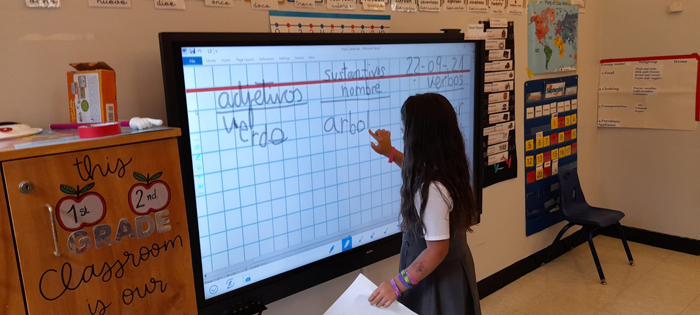
Following the New York State Department of Education Common Core Standards and the challenging curriculum from Spain, our students finish the elementary school program with an education that is comparable to the best and most prestigious private schools in the United States and Europe.
Our engaged learning commitment includes hiring faculty native to the language being taught. As in all things here at the Maryel, we set the highest standards because we know our students will achieve them
Using the Multiple Intelligence Approach as base of our pedagogy our students receive an extremely personalized education. With a student teacher ratio of 5:1, teaching is relevant and flexible, enabling students to remain motivated and achieve their full potential.
“Using the Multiple Intelligence Approach as base”
Language Arts
Language development is at the core of our elementary school. Children experience the many dimensions of language: listening, speaking, reading and writing in both languages in a motivating and challenging environment that makes sense to them.
Our curriculum establishes a strong foundation in the language arts and employs the traditional subjects of phonics, punctuation, penmanship, and formal grammar in both English and Spanish.
Cursive writing is an important part of the language arts curriculum. While we know that the implementation of innovation is fundamental we also believe that we cannot forget what it is proved. Writing by hand strengthens the learning process.
Maryel encourages a love of reading. The English and Spanish programs are designed to prepare students to become fluent readers and writers, good listeners,
and confident speakers. All students read a varied selection of literature including biography, history, poetry, folktales, and plays. The English and Spanish curriculums provide regular practice in oral and written communication, including
dictation, which develops phonetic decoding and auditory discrimination skills.
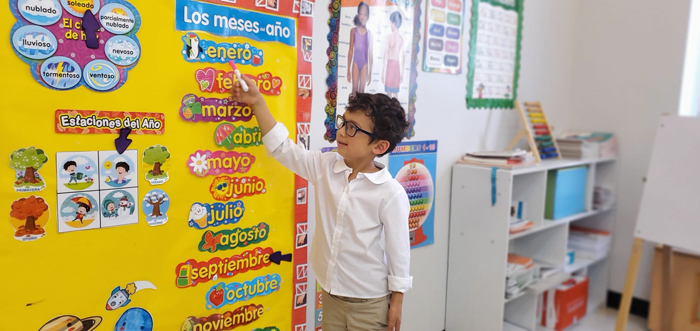
Each student has opportunities to perform and practice public speaking through poetry recitation and drama. Students work on creative and expository writing assignments, poetry, and journals throughout the Elementary School. They are encouraged to focus on the process of writing and to revise their work.
The English and Spanish curriculum includes lessons in spelling, handwriting, vocabulary, grammar, and word processing. Dictation is a part of each
reading lesson and approaches accurate spelling through phonic patterns.
Maryel students work in small groups designed to accommodate various learning approaches and styles. Reading is part of each child’s daily homework.
Mathematics
Maryel School successfully implemented Singapore Math in 2016. The philosophy behind Singapore Math is to provide students with a thorough understanding of math concepts developed through a sequence that uses concrete manipulatives, pictorial representation, and then abstract representation. Maryel students are challenged to understand the “why” and “how” of number manipulation rather than memorize facts and sequences of steps when problem-solving. Singapore Math help students acquire a deep understanding of mathematical concepts.
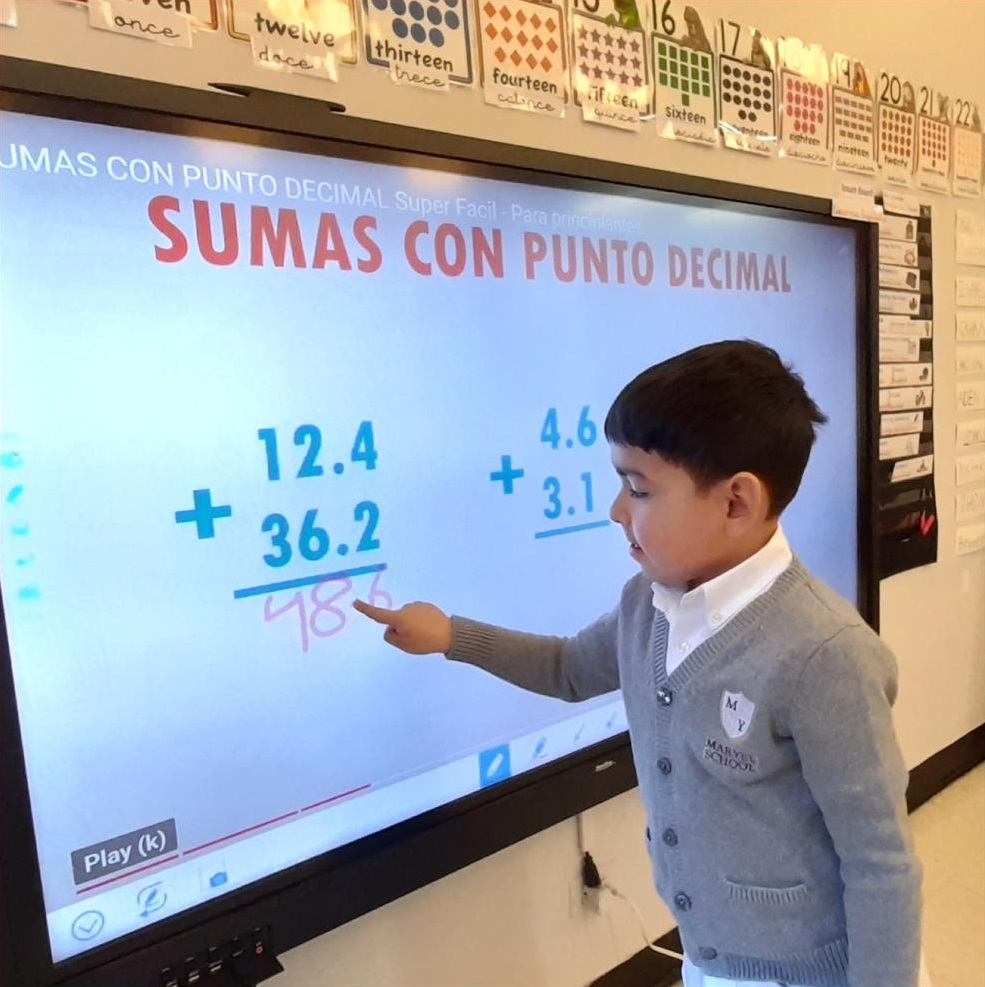
Students are encouraged to take risks and try new strategies as their understanding of mathematical relationships develops. Daily math lessons provide many opportunities to explore, investigate, and solidify an understanding of numbers and operations, geometry, and measurement while continuing to provide healthy cognitive challenges through in-class discussions and collaborative group assignments.
Social Studies and Geography
Children learn about pluralism, cross-cultural, socio-cultural, socio-economical, and socio-political interdependence. The social studies and geography curriculum provides an introduction to ideas and information from the social sciences.
Basic research strategies and mapping skills are introduced, and students work on interdisciplinary cultural projects, as well as immersion experiences through role play and simulations. Students are encouraged to discuss current events. City, national and international news events are discussed during the school year. The youngest students gain a broader understanding of themselves in relation to their environment and the world around them, while older students explore different cultures and environments, emphasizing geography, climate, and animal and human adaptation Students are encouraged to evaluate and report on current events, particularly in relation to their growing knowledge of past events and forces.
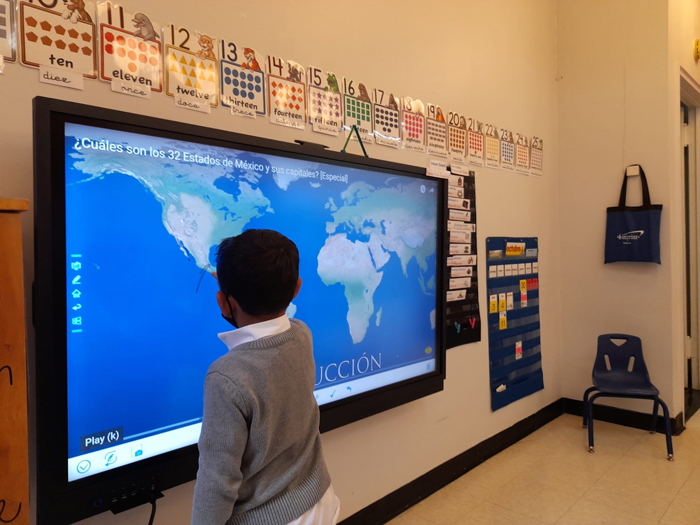
Educational trips supplement the program, and visits to community organizations and historic sites are an integral part of the curriculum.
Science
The Kindergarten through Fifth Grade science curriculum focuses on developing the skills of scientific inquiry. It includes experiments, predictions, and hands-on learning experiences that cultivate a curiosity for science. It gives an overview of fundamental topics in physics, chemistry, earth science, and biology.
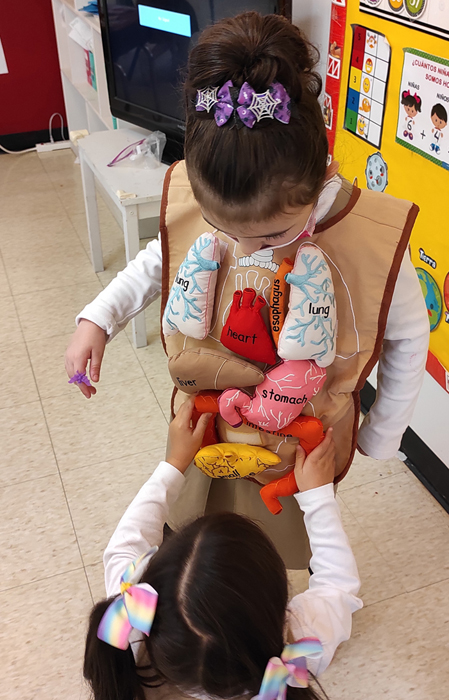
Mathematics, technology, and engineering principles are incorporated into the science curriculum each year and students will be expected to complete various in-class projects. These projects supplement the curriculum, which give students an opportunity to engage in scientific inquiry over the course of the school year.
Technology
Our students use technology extensively in the Elementary School. All classrooms are equipped with interactive whiteboards, which enhance interaction with the material as well as collaboration among students; a 1:1 device program begins in Kindergarten.
The curriculum teaches students to use the computer as an academic tool as they gain confidence in their ability to explore and create with state-of-the-art technology. Students engage in creative, open-ended problem solving and project-based learning that supports the classroom curriculum, and are taught robotics and programming throughout Elementary School, beginning with the use of BeeBots in Kindergarten and continuing through to programming with Scratch and LEGO Robotics.
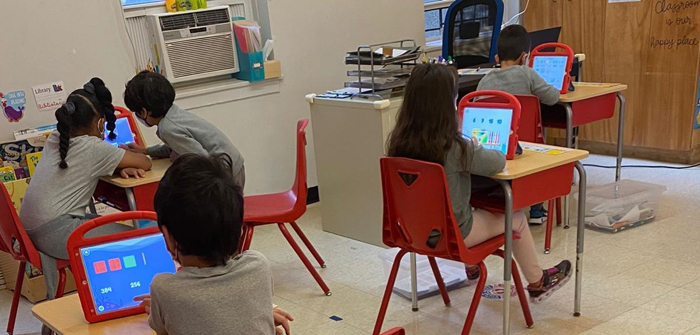
By the end of Elementary School, students have acquired skills in keyboarding, word processing, multimedia software, programming, robotics, design, engineering, web-based research, and digital citizenship skills.
The Arts
At Maryel, we strongly believe that in the same way that bilingualism broadens understanding and empathy, so too does an appreciation and understanding of others through artistic expression across disciplines.
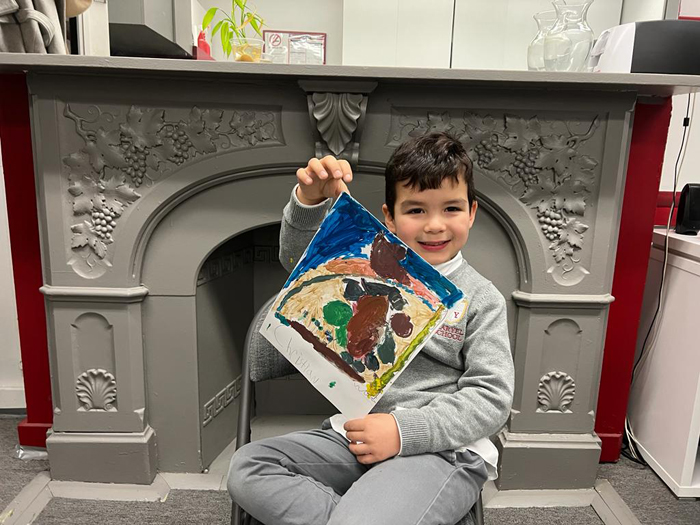
Chess
Maryel students continue formal chess lessons during the Elementary School. This class helps children improve their concentration and memory. Chess enhances reading and math skills and fosters logic, critical thinking and creativity. Maryel Chess program encourages and rewards hard work.
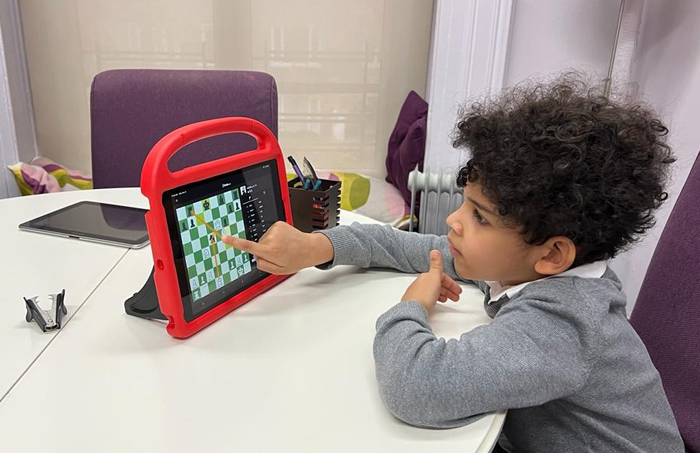
The benefits of teaching Chess to our students and integrating it into the educational curriculum extend far beyond academic capabilities. Chess students learn to analyze, to plan and to perform, both over the board and in real life. The children learn how to concentrate, how to think ahead, how to solve complex problems, and how to make difficult decisions—all valuable life skills.
Emotional Intelligence Program
Emotional Intelligence can make a big difference in children lives. Emotions drive learning, decision-making, creativity, relationships, and health. The Maryel Emotional Intelligence Program teaches children how to develop their emotional intelligence.
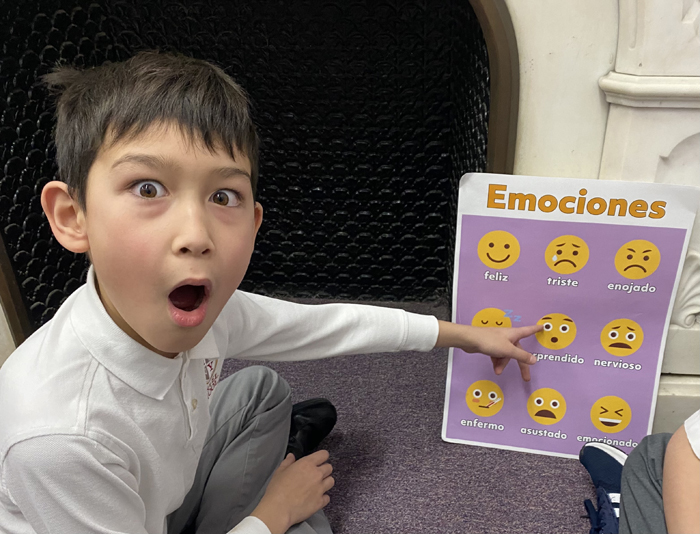
Children learn how to recognize, label, and manage their emotional state in order to unlock their intellectual and critical-thinking potential. We are proud to be pioneers in the field of Social and Emotional Learning.
Physical Education
The physical education program fosters the enjoyment of movement and the development of self-confidence; it emphasizes a variety of motor and sports-related skills, as well as health-related fitness.
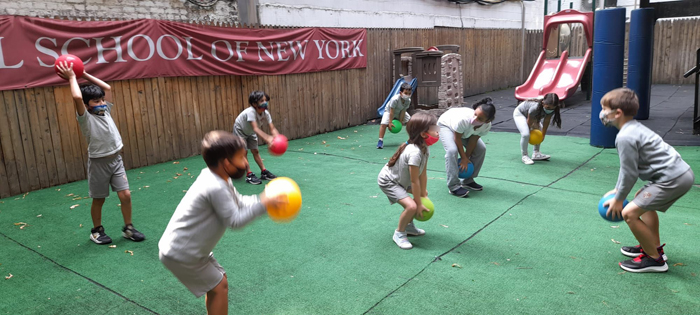
The physical emphasis in Kindergarten, first and second grades is on teaching fundamental motor, manipulative, and sport skills. As the students gain greater proficiency in third and fourth and fifth grades, they incorporate more complex, specialized skills and simple strategies into modified competitive games.
In addition, physical education classes provide opportunities for growth in socialization, sportsmanship, and cooperative play.
Yoga and Mindfulness
Children are encouraged to “play” yoga and experience how their breath and body move together in a fun-filled way.
The Maryel philosophy of teaching yoga to children provides kids with a variety of yoga tools that they can take away from yoga class and use throughout their lives. Through basic and challenging yoga poses, partner poses, group poses, yoga games, mindfulness activities, music and stories, we promote strength, flexibility, coordination, and body awareness.
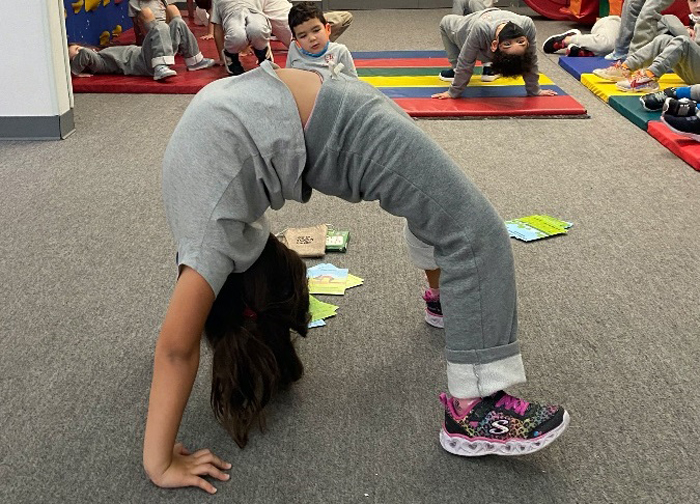
Breathing and visualization techniques teach focus, relaxation and self-control. This program also promotes inner-strength, confidence and self-esteem; a feeling of well-being and respect for others; and, love for one’s self, inside and out.
